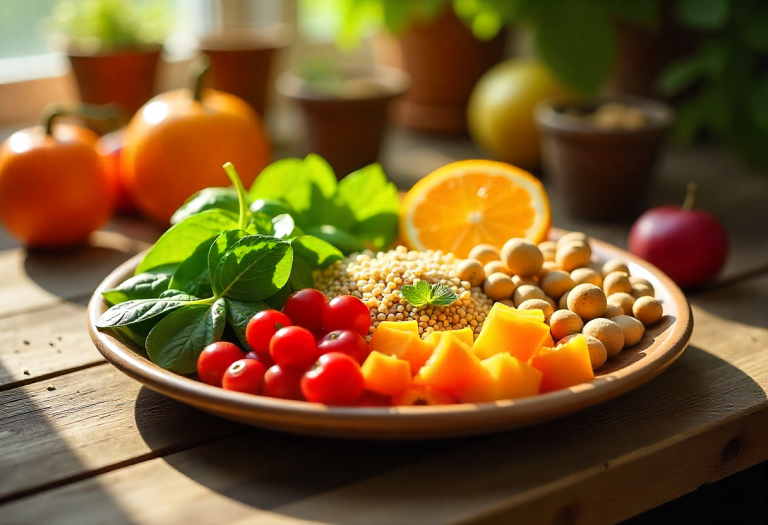We all have those days when fatigue hits hard — even after a full night’s sleep. But what if the problem isn’t rest, but fuel? Nutrition isn’t just about calories; it’s about what powers your body at a cellular level. The foods you eat decide whether you’ll coast through the day or crawl through it.
Let’s talk about how to eat for energy — not just to fill your stomach, but to fire up your life.
1. Start Strong with Complex Carbs
Forget sugary cereals and white bread that spike your energy for an hour and then crash it down. Instead, begin your day with complex carbs like oats, quinoa, or millets. They release glucose slowly, keeping your blood sugar stable and energy consistent.
Try this: a bowl of oatmeal with banana slices, honey, and a sprinkle of chia seeds. It’s simple, filling, and packed with fiber.
2. Don’t Fear Healthy Fats
Fats have an unfair reputation, but they’re crucial for brain function and long-term energy. Avocados, nuts, seeds, and olive oil keep you alert and satisfied.
A handful of almonds or a spoonful of peanut butter can be the difference between mid-day sluggishness and a sharp, focused mind.
3. Power Up with Protein
Protein isn’t just for muscle gain — it’s your secret weapon for sustained energy. It helps repair tissues and balances blood sugar.
For vegetarians, include lentils, paneer, soy chunks, chickpeas, and Greek yogurt. A mix of dal and rice with a drizzle of ghee gives a complete amino acid profile that keeps your body running efficiently.
4. Hydration Is the Hidden Key
Most people confuse hunger with dehydration. Water is essential for every metabolic reaction in your body. Even mild dehydration can cause fatigue, headaches, and poor concentration.
Aim for at least 2.5–3 liters of water daily. Add lemon or cucumber slices if plain water feels boring.
5. Micronutrients Matter More Than You Think
Iron, magnesium, and B vitamins play a major role in how your body converts food into energy.
- Iron: Helps transport oxygen — get it from spinach, beetroot, and lentils.
- Magnesium: Vital for energy metabolism — found in nuts, seeds, and bananas.
- B vitamins: Boost cell energy production — abundant in whole grains and dairy.
6. Eat Mindfully
Sometimes, how you eat matters more than what you eat. Eating too fast can lead to bloating, indigestion, and nutrient loss.
Sit down, chew slowly, and avoid screens while eating. This allows your body to signal when it’s full and improves digestion dramatically.
7. Time Your Meals Right
Long gaps between meals can cause your blood sugar to drop, making you tired and irritable. Instead of three large meals, try smaller, balanced meals every 3–4 hours.
A good pattern:
- Breakfast: oats with fruits and nuts
- Midday snack: fruit + nuts
- Lunch: dal, rice, sabzi
- Evening: smoothie or roasted chana
- Dinner: light khichdi or vegetable soup
8. Cut Processed Energy Killers
Refined sugar, sodas, fried snacks, and junk food create instant highs followed by deep crashes. They mess with your metabolism and leave you drained.
Replace them with fruit-based desserts, baked snacks, or homemade smoothies. Your body will thank you — and your energy levels will prove it.
9. Sleep and Food Are Teammates
What you eat affects how you sleep, and vice versa. Late-night caffeine, heavy dinners, or skipping meals can disturb your circadian rhythm.
Stick to lighter dinners and herbal teas like chamomile before bed. A well-rested body processes food better — and wakes up more energized.
Final Thoughts
Eating for energy is not about fancy diets; it’s about balance, timing, and mindfulness. When you fuel your body with clean, whole foods, you don’t just survive the day — you thrive.
Every bite can be a step toward a more energetic, focused, and productive you.
